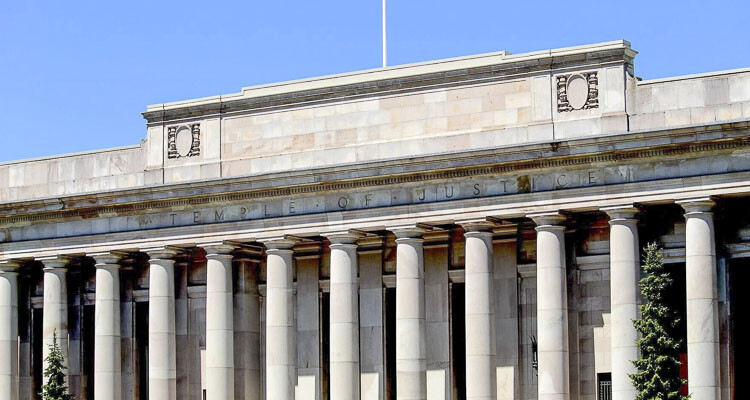
The constitutionality of the capital gains income tax rests on whether it’s characterized as an income tax, as opponents claim, or an excise tax, as supporters assert
Brett Davis
The Center Square Washington
Proponents of the disputed capital gains income tax defended inclusion of projected revenue from the tax in Washington state Gov. Jay Inslee’s proposed $70.4 billion 2023-25 operating budget that he announced Wednesday afternoon.
The tax is slated to go into effect in January, but was ruled unconstitutional earlier this year by a Douglas County judge. Washington Attorney General Bob Ferguson asked the state Supreme Court to take up the case on appeal, with the high court agreeing to do so. Oral arguments in the case are slated to begin on Jan. 26, 2023.
The Supreme Court has since given the okay for the state Department of Revenue to administer and collect the tax in the meantime.
“With the Governor’s budget, we can now see the real world benefits of the capital gains tax on the richest 0.1% Washingtonians,” said Treasure Mackley, executive director of Seattle-based Invest in Washington Now tax policy institute, in a same-day statement.
The Democratically-controlled state Legislature passed and Inslee signed into law a capital gains income tax aimed at the state’s wealthiest residents in 2021. The measure adds a 7% tax on capital gains above $250,000 a year, such as profits from stocks or business sales. Exceptions include the sale of real estate, livestock, and small family-owned businesses.
“Putting this money into expanding childcare and early learning will help address the serious challenges facing working parents and their employers, especially in rural Washington,” Mackley continued. “If a few millionaires succeed in rolling back the capital gains tax to stuff their own wallets, they will be taking childcare out of the hands of thousands of families.”
The Invest in Washington Now statement pointed to the governor’s proposed budget using money from the tax to help working parents, particularly in rural areas, noting it increases spending on childcare, preschool, and child welfare assistance by $855 million over the next two years (on page 6 of the budget and policy highlights document).
That includes adding 4,000 preschool slots, as well as more affordable childcare slots for low income families by increasing child care subsidy rates.
The tax is also estimated to bring in $500 million a year for the Education Legacy Trust Account, which was created in 2005 to be used only for support of K-12 schools. The account is funded through estate taxes and interest earnings.
Andrew Villeneuve, founder and executive director of the Redmond-based Northwest Progressive Institute, also approved of Inslee’s inclusion of expected funds from the tax.
“The NPI team is very pleased that Gov. Inslee included anticipated capital gains tax revenue in his proposed budget for the next biennium,” he told The Center Square in an email. “Our new capital gains tax on the wealthy, created by ESSB 5096, is a crucial funding source for education.”
He continued, “Amply providing for the education of all youth residing within Washington’s borders is the state’s paramount duty as provided in Article IX of the Washington State Constitution. ESSB 5096 both helps us meet our paramount duty and it makes our tax code fairer by requiring the wealthier to contribute at a more appropriate level to our common wealth.”
Villeneuve went on to say “the law is presumed constitutional until proven otherwise, and the previous trial court ruling handed down by Judge Brian Huber is of no practical consequence now that his decision has been stayed and the case accepted by the Supreme Court.”
The constitutionality of the capital gains income tax rests on whether it’s characterized as an income tax, as opponents claim, or an excise tax, as supporters assert. The state constitution’s uniformity clause does not allow income to be taxed at different rates.
This report was first published by The Center Square Washington.
Also read:
- Stephen Davis brings his message of unity with Turning Point USA presentation in VancouverStephen Davis of Turning Point USA visited Vancouver to share a message of unity and faith with students and families.
- Cardinals elect American pope to lead Catholic churchRobert Francis Prevost becomes the first American elected pope, taking the name Leo XIV following a fourth-round conclave vote.
- Camas Police arrest robbery suspectCamas Police arrested a 19-year-old Vancouver man following a reported armed robbery early Thursday morning.
- CCSO deputy involved in deadly force incidentA CCSO deputy reported fatally stabbing a DUI suspect during an altercation at the Ridgefield WSP Scale House.
- Opinion: Revolution or revival?Nancy Churchill argues that Washington state is ground zero for a Marxist-style revolution but says a cultural revival is possible through personal responsibility and the America First movement.
- WA governor pressed to veto $1.8B piece of Democrats’ tax billGrocers and restaurateurs are urging Gov. Ferguson to veto a surcharge in HB 2081 that they say will raise food prices statewide.
- CCSO makes arrest in attempted kidnapping investigationA 31-year-old Vancouver man has been arrested in connection with an attempted kidnapping involving a teenage girl near NE 149th Street.











